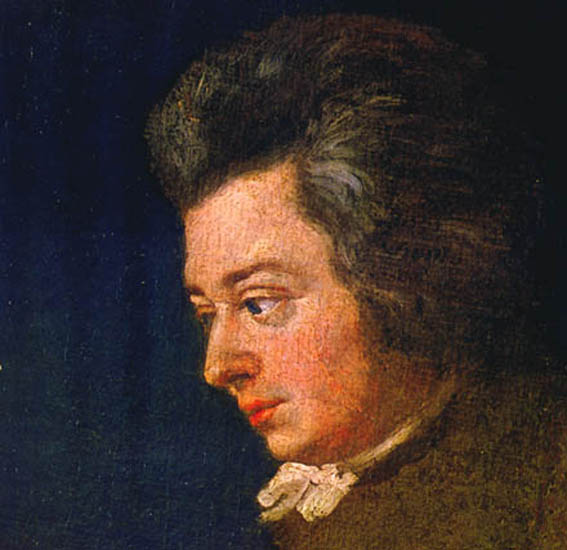Evolve presentation by Greg Athnos
“Mozart, the Neglected Genius and His Requiem”
Saturday February 22, 2020 in MDH from 9:30-11:15
Wolfgang Amadeus Mozart (1756-91) was born in Salzburg, the child of very devout Catholic parents. His father Leopold believed in earthly miracles and considered his son’s musical gifts to be of divine origin. Wolfgang showed prodigious ability from earliest childhood. At age 5 he reportedly could play the violin and piano and began composing music.
His parents encouraged family prayer, devotion to saints, fasting, attendance at Mass and frequent confession. There was a focus on eternal salvation and dangers to the soul and consequences of sin resulting in eternal punishment in hell. In 1770 on a visit to Rome, Mozart was awarded the Order of the Golden
Spur, a form of honorary knighthood by Pope Clement XIV recognizing having shown signs of faithful devotion and the merits of virtue.
Over his brief lifetime, he composed over 60 pieces of sacred music. His final piece the Requiem was only partly composed due to his death at age 35. Mozart stated that the image of death was no longer terrifying and he stated that “death is the true goal of our existence.” He believed he was being poisoned and that his death was at hand. He believed that the Requiem was for him and was a commission from God to get his spiritual house in order.
While the Requiem is a gravely solemn piece, it does not focus on hellfire and brimstone. It evokes a calmness of attitude toward death via the use of soothing and melancholic soft melodies. He was living in a stressful time following the French Revolution, threat of war in Europe, the decline of interest in art forms and his own mounting debt. Death could be viewed as a new beginning in a more blissful existence.
The Requiem mass is one of the oldest musical genres dating back to the first millennium with the spread of Christianity and Gregorian chant in churchs. From Medieval Ages, the Requiem included a section known as the “Dies Irae” Latin for The Day of Wrath which reflected a theology focused on the soul’s peril of eternal damnation. Emphasizing judgment, fear and despair. Mozart followed tradition and began the opening section of Dies Irae with the Lacrimosa (weeping) but only completed a few bars before he died.
Greg Athnos shares these insights regarding his presentation: “Genius? Yes! Loved in his day? No! Why Not? We’ll explore his brief and tragic life and some of his great but neglected works. His final work, the unfinished Requiem Mass, will be our main focus as it contemplated the meaning of death which Mozart called “our truest friend”.
